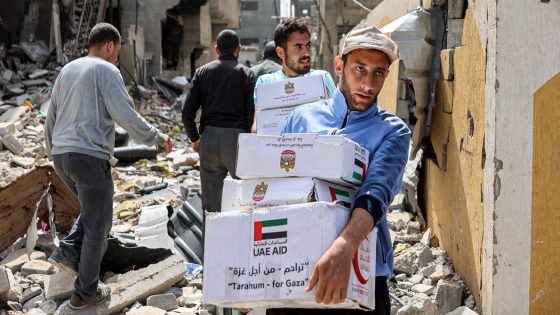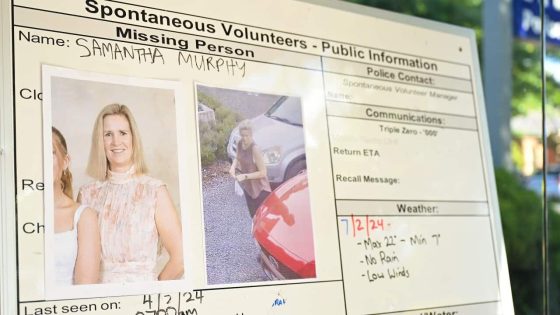The U.N.’s top coordinator for humanitarian aid for Gaza has said that Israel has taken steps to improve the delivery of relief supplies to the enclave but warned that much more must be done to meet the vast need there.
Israel has announced efforts to increase the flow of aid into Gaza, including by opening an additional border crossing and by accepting shipments at a nearby port. But the United Nations has warned with increasing urgency that a famine is looming and that deliveries still fall short of the level needed to stop the spread of starvation.
The aid coordinator, Sigrid Kaag, said in a briefing at the Security Council on Wednesday that, while Israel had made efforts to increase the entry and distribution of aid, “further definitive and urgent steps are needed to set the course for a sustained flow of humanitarian and commercial goods into Gaza in terms of volume, need and reach.”
“Given the scale and scope of destruction and the extent of human suffering, every day counts,” she added.
According to U.N. data, the number of aid trucks entering Gaza has risen, but only slightly. In the two weeks ending Monday, the most recent day for which figures were available, an average of 195 trucks had entered Gaza each day through the two main crossings in the south of the territory.
That was slightly higher than the average of 185 trucks daily in the two weeks before that — but still far short of the 300 trucks of food that the World Food Program estimates are needed per day to begin to meet people’s basic needs.
Ms. Kaag, a Dutch former finance minister and deputy prime minister, was appointed by the United Nations in December to improve efforts to get aid into Gaza. The role was laid out in a Security Council resolution that aimed to address the humanitarian crisis in Gaza, which has been under intense Israeli bombardment since the Hamas-led Oct. 7 attacks.
Countries including the United States have tried to find air and sea routes into Gaza, but aid groups say delivery by truck would be far more efficient. They have described deep the challenges in navigating Israeli security checkpoints and in traveling through a war zone, including impassable roads, unexploded ordnance and fuel shortages. Israel has denied restricting aid, blaming U.N. agencies for bureaucratic delays.
Ms. Kaag said that the United Nations was in contact with the Israeli government on urgent measures needed to improve the flow of aid, including easing procedures at Israeli checkpoints, repairing roads and allowing humanitarian convoys to move as scheduled.
Ms. Kaag’s comments echoed those of President Biden’s special envoy for humanitarian issues in Gaza, David Satterfield, who said on Tuesday that the volume of aid into Gaza had increased but that “much more aid is needed.”
Source Agencies



